Anastasia Romanov: The Last Grand Duchess #10 Read online
Page 5
Great-Uncle Thorne had opened this trunk with the gold corners and was busily digging through it. From time to time he lifted up a garment for inspection and either tossed it on top of the furs or back into the trunk. As he did this, he whistled softly, a tune Maisie didn’t recognize. He completely ignored her, so Maisie took a look in her closet.
To her surprise, what she had always assumed was the back wall had disappeared. The closet stretched back into a second, smaller room. Maisie’s clothes had been pushed aside for easier access into the room, and she went in there now.
The room was indeed small, but large enough for a coatrack, from which all kinds of coats hung: velvet, lace, embroidered. A hat rack held hats with feathers and veils and bunches of fruit and jewels. Maisie could see the rectangle where the trunk had been, that part of the floor a lighter shade than the rest. On the walls hung travel posters from Trans World Airlines, bright illustrations of exotic places with drawings of airplanes on them. In one corner, on a narrow desk, stood stacks of old postcards. Maisie picked one up and saw the faded signature: YOURS, MAISIE PICKWORTH.
“I think we’re ready!” Great-Uncle Thorne called from the closet door.
Maisie took one more look around this strange room before she made her way back out.
“What is that place?” she asked.
“Why, the Voyage Room, of course,” Great-Uncle Thorne said without looking up at her. He pronounced voyage like voy-ah-ge.
“The Voyage Room,” Maisie repeated, imitating Great-Uncle Thorne’s pronunciation.
“I believe we are ready,” he said.
From his breast pocket he pulled out an envelope.
“I just need to add the Pickworth seal to this, and then we shall open the egg and . . .”
Great-Uncle Thorne paused.
“Where’s your brother?” he asked, as if he’d just noticed Felix was absent.
“In bed,” Maisie said.
“Bed?” Great-Uncle Thorne bellowed. “On this most important night?”
Maisie nodded.
“Well, go and get him out of bed!” he ordered her.
“She doesn’t have to,” Felix said in a tremulous voice from the doorway. “I’m here.”
What Felix realized as he lay in bed avoiding this very moment, was that if he did do Great-Uncle Thorne’s bidding this one last time, it might indeed be the very last time. And then he could go back to his normal life as a kid at Anne Hutchinson Elementary School. If it was time to open the egg, then he would do it. He would see what was inside, and then he would do whatever was required of him, because this might put an end to The Treasure Chest. No more getting chased, locked up, thrown overboard, fleeing, hiding, running, or losing Maisie.
No more adventures.
No more time travel.
The thought made Felix smile.
So he got up and made his way to the Princess Room, where Maisie and Great-Uncle Thorne were preparing to open the egg.
He had to admit that he was surprised to find no egg in sight. Instead, there were clothes and furs everywhere.
“Good!” Great-Uncle Thorne exclaimed, his eyes shining.
He looked through the pile of clothes and began pulling out items and tossing them in Felix’s direction. Almost simultaneously he tossed other items at Maisie, who scooped them up with great delight.
“You need to be prepared,” Great-Uncle Thorne muttered.
Maisie held an embroidered white silk dress up to her and skipped over to the full-length mirror.
“No, no!” Great-Uncle Thorne called to her. “There are three pieces to that.”
He showed her a velvet dress and another white silk piece with more embroidery.
“And, of course, there’s the tiare Russe,” he added, lifting a jewel-studded crown up for Maisie to see.
“I get to wear that?” she exclaimed, racing back to Great-Uncle Thorne.
She took the tiara from him and placed it on her head, surprised by how heavy it was.
“My neck’s going to break!” she complained.
“You won’t wear it all the time,” Great-Uncle Thorne said, plucking it from her head and placing it along with the three-piece dress into the trunk.
Maisie watched as he added a long white fur coat with a matching hat and muff to the trunk.
“Now, Felix,” Great-Uncle Thorne said. “Put this on.”
“I’m not wearing this!” Felix said, studying what Great-Uncle Thorne had thrown his way.
Maisie laughed. “That’s funny,” she said.
That was a white blousy shirt with a large navy blue sailor collar that fell behind the back.
“And yours,” Great-Uncle Thorne was saying, ignoring both their delight and their complaints. “You have to put this on, too, Maisie.”
He handed Maisie a very similar piece of clothing, except hers was a drop-waist dress.
“Ugh!” she said. “Why do we have to dress like sailors?”
Great-Uncle Thorne didn’t answer. He was too busy adding items to the trunk: a military-looking coat and breeches for Felix; a white lace dress and pearls for Maisie; a black fur coat and hat for Felix. He didn’t pay any attention to either of them until the trunk was full. Then he sighed and stepped back to admire his choices before closing the gold latch.
“Go! Change your clothes!” he shouted, escorting them to the door so they could go and change.
Reluctantly, they obeyed, returning to the room in their ridiculous sailor suits, feeling awkward and silly. They both had their shards around their necks, too.
Great-Uncle Thorne surveyed them. He nodded approvingly.
“Now,” he said, “you two will arrive suitably dressed. And you’ll be prepared for anything. A ball. Ice skating. Formal dinners. Anything.”
Maisie took a deep breath.
“Is it time?” she asked hopefully.
Great-Uncle Thorne got a faraway look in his eyes.
“How I wish I could go with you,” he said wistfully. “What wonders await you!”
Felix swallowed hard, trying to calm himself. What if they didn’t come back? What if he never saw his mother or father again? He thought of his mother’s bacon-and-egg pasta, of her cool hand on his forehead when he got sick. He thought of his father’s hearty laugh, the way he smelled like paint and turpentine and the spicy cologne he sometimes wore.
“Are you crying?” Maisie asked him.
Felix shook his head, willing the tears he felt burning his eyes not to fall.
“The final thing,” Great-Uncle Thorne said, as if he had just remembered something.
Would they ever get to Russia? Maisie wondered as Great-Uncle Thorne fumbled inside his jacket pocket.
He produced an envelope of old-fashioned heavy cream paper. From the envelope he pulled a single sheet of paper.
“A letter of introduction,” he explained. “Very common at the time. You show up with one of these, and there are no questions asked. It’s almost like a reference letter.”
“What does it say?” Maisie asked.
“It says that you are Maisie and Felix Robbins, of New York City and Newport, and that you are the relatives of Phinneas Pickworth. In fact,” Great-Uncle Thorne said, a small smile tugging at the corners of his mouth, “it’s signed by Phinneas himself.”
“How?” Felix blurted.
“Forgery, my dear lad,” Great-Uncle Thorne answered.
His hand went back inside his jacket pocket, and this time he retrieved sealing wax, a gold embossed seal, and matches.
“I shall give it the Pickworth seal,” he explained, carefully folding the letter back into the envelope and placing the envelope on the top of the table beside the bed, “and then you shall be ready to go.”
Felix’s heart galloped.
Great-Uncle Thorne struck the
match, and the smell of sulfur filled the room as the blue flame jumped to life. He carefully dripped red wax onto the envelope, then pressed the Pickworth seal into the hot wax.
“Now,” he said, “the egg.”
With a deep breath, Great-Uncle Thorne blew out the flame, sending them all into darkness.
“Hey!” Felix said when he realized that the lights weren’t working.
“Hmm,” Great-Uncle Thorne said. “It appears the electricity has gone out.”
“But why?” Felix asked, his throat suddenly dry with fear. “There’s not a storm or anything.”
Again the sound of a match striking and the smell of sulfur filled the room. A moment later Great-Uncle Thorne’s face appeared, ghostly behind two candles he’d lit.
“Peculiar,” he said softly.
Maisie and Felix watched him disappear into the closet again.
This time when he came out, he had the egg with him.
“At last,” he whispered, his gnarled hands caressing the jewels.
Until he reached the dark, dull sapphire.
His long finger with its yellowed fingernail paused there for a moment before pressing the sapphire.
A sound like a sigh came from it, and Felix felt the hairs stand up along his arms.
A brief hesitation, and then a small door swung open.
Great-Uncle Thorne felt around the gold edges of the door until another small sigh came from the egg. Like the wings of a butterfly, small lines of gold appeared, and each could be lifted and opened to reveal the inside of the egg.
Maisie and Felix held their breaths.
The inside of the egg was awash in lapis lazuli, the bluest of all semiprecious stones.
“Lapis lazuli,” Great-Uncle Thorne said in wonder, “prized since antiquity for its color. It was used for the eyebrows in King Tutankhamen’s funeral mask.”
When Great-Uncle Thorne ran his finger over the smooth stone, another sigh sounded, and from the center popped a peacock. This peacock had a tail made of glittering jewels that opened and closed as it strutted across the lapis. Maisie and Felix watched, mesmerized by the gold bird with the bejeweled tail, until it stopped, opened its small ruby beak, and let out a sound like a baby crying.
“What a noise!” Maisie said, covering her ears.
But as soon as the sound stopped, the walls of the lapis swiveled to reveal mirrors that reflected the peacock hundreds of times.
The peacock once again disappeared into the floor.
The mirrors swiveled again to reveal walls covered with miniature art and icons, all of it made with sparkling jewels, gold, and silver.
Six sections of the wall opened, and from each of them a small figure emerged.
Four girls and one boy.
They were all dressed similarly, in white sailor suits.
“It’s them,” Felix whispered.
“Who?” Maisie whispered back.
“The Grand Duchesses and the Tsarevich,” Felix said.
One of the Grand Duchesses had her hand outstretched.
In it was an alabaster envelope with a ruby for its seal.
Great-Uncle Thorne took it from her. When he touched the ruby, the top of the envelope sprang open.
“A note,” Great-Uncle Thorne said.
He carefully took the alabaster letter inside it and held it out for Maisie and Felix to see.
In blue as blue as the lapis lazuli, were the words:
HELP ME
Chapter Five
THE IMPERIAL PALACE AT LIVADIA
“I’m not going,” Felix said, goose bumps shooting up his back.
At the same time, Maisie said, “Let’s go!”
Great-Uncle Thorne put the note back in its little envelope and the envelope back in the Grand Duchess’s hand.
As soon as he did, everything happened in reverse:
The five Romanovs went behind the walls.
The walls swiveled and became mirrors.
The mirrors reflected hundreds of peacocks as the bejeweled gold one appeared, crying its cry.
The mirrors swiveled and became lapis lazuli walls.
The peacock strutted, opening and closing its tail.
The peacock disappeared beneath the lapis floor.
The butterfly-wing doors swung shut, their gold borders fading into the egg.
The dark, dull sapphire swung back into its place.
A small sigh sounded.
The three of them stared at the egg. Then at one other. Then back at the egg.
“You will put one hand here,” Great-Uncle Thorne told Maisie, placing the handle of the trunk in her hand.
“And one hand here,” he continued, placing her other hand on the egg.
“And you,” he said to Felix—
But Felix stepped back, away from Great-Uncle Thorne and Maisie.
“No,” he said. “I can’t.”
“You must,” Great-Uncle Thorne said sternly.
Felix shook his head.
Or at least he tried to. His whole body was trembling so much that he couldn’t tell if he had shaken his head enough to say no again.
“Felix,” Maisie said.
“That note said, Help me,” Felix reminded his sister.
“All the more reason to go,” Great-Uncle Thorne told him.
“All the more reason to stay in my nice, safe bed,” Felix countered.
“Poppycock!” Great-Uncle Thorne said.
And with that he grabbed Felix, hard, by the hand, placed Felix’s hand on the egg, and just like that, they began to tumble.
Felix looked up into a bright blue sky, against which white minarets rose.
Minarets, Felix knew, were on mosques.
And mosques were Muslim.
And, he thought unhappily, Imperial Russia was Russian Orthodox, not Muslim.
So he hadn’t landed in Russia at all, he realized with growing fear. He’d landed maybe in the Middle East, a place whose history he knew nothing about.
Felix sat up.
Before him lay a little village of whitewashed houses perched on a slope. All the information Alex Andropov and Great-Uncle Thorne had given him on Russia had not included anything like this.
The sound of pounding hooves thundered behind him, and Felix turned to see an army of men in white pants and embroidered jackets with what looked like black bushes on their heads. Bearded and dark, the men passed on their horses without any notice of Felix.
But a female voice said, “Boy? What are you doing?”
Felix saw a pair of dark eyes peering at him over a black veil that covered most of a girl’s face. Her hair was bright red, and her gauzy clothes a color blue that made Felix think of that lapis lazuli.
“I think I’m lost,” he said.
“You aren’t Tartar,” she said, matter-of-factly.
Tartar? Felix thought. No one had mentioned that. He wondered who the Tartars were and why he’d landed with them instead of with the Tsar.
“No,” Felix said. “I’m not.”
One thing Felix had to admit, it smelled really good here. Like flowers and fruit trees. In fact, the slopes were awash in purples—lilacs and wisteria and other plants he couldn’t recognize. The girl in front of him had a basket filled with plump red strawberries. As she studied his face, she ate one, and then another.
Felix took a deep breath.
Beneath the smell of flowers, he could smell the salty air near the ocean.
“Where am I, anyway?” he asked.
“Between Yalta and Sevastopol,” she said.
Felix sighed. Neither of those places sounded familiar. How would he ever find Maisie now?
“How did you get here?” the girl asked, cocking her head with curiosity.
Felix remembered Al
ex Andropov bragging about the Trans-Siberian railroad. Russia built their railroad faster than any country in Europe, he’d boasted.
Felix grinned. “Train,” he offered.
The girl frowned. “The Tsar forbade the railroad from coming here,” she said.
“He did?” Felix asked. What does Alex Andropov know, anyway? he thought.
“Except for the one track from Simferopol,” she added.
Felix grinned again. “Yes, that’s the one I rode on.”
“And to get here from the train in Sevastopol, you took . . . ?”
She waited.
Felix took a deep breath, stalling. His nose filled with the smell of sea air.
“A boat,” he said. “I took a boat.”
She considered this.
“That must have taken hours,” she finally concluded.
“Yes,” Felix agreed. “Hours.”
“And you traveled this far because . . . ?”
Felix tried to think of an answer.
“The Tsar,” he said, vaguely.
“For the opening of the palace at Livadia?” she said, surprised.
“Yes!” Felix said gratefully.
Livadia. Great-Uncle Thorne had told Felix and Maisie all about it.
Relief swept over Felix. He was in Crimea.
Maisie saw white. Blinding, beautiful, endless white.
She squinted against the brightness to try to better see what she was looking at.
A palace, she realized. A palace that reminded her of the palazzos she had seen in Florence, Italy, when she and Felix had met Leonardo da Vinci. For a moment, Maisie worried that things had gone terribly wrong and she’d somehow ended up with this steamer trunk and Fabergé egg in Florence.
The egg.
Maisie held it awkwardly in her hand. This won’t do at all, she thought.
She opened the trunk, and for an instant it seemed that the things inside shifted. Maisie blinked.
No, of course they hadn’t moved. She scolded herself for her overactive imagination.

 Kitchen Yarns
Kitchen Yarns Waiting to Vanish
Waiting to Vanish Morningstar
Morningstar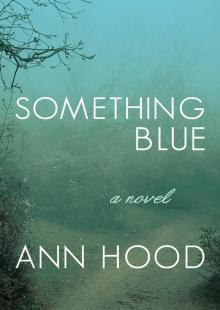 Something Blue
Something Blue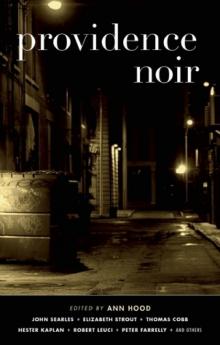 Providence Noir
Providence Noir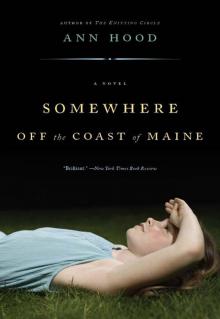 Somewhere Off the Coast of Maine
Somewhere Off the Coast of Maine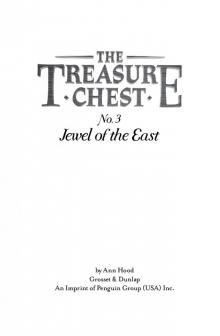 Jewel of the East
Jewel of the East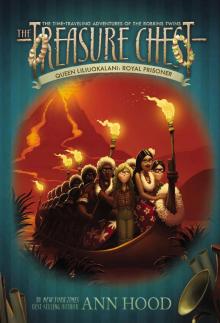 Queen Liliuokalani: Royal Prisoner
Queen Liliuokalani: Royal Prisoner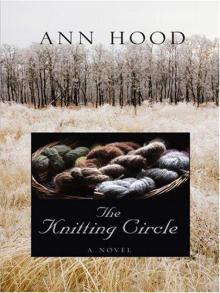 The Knitting Circle
The Knitting Circle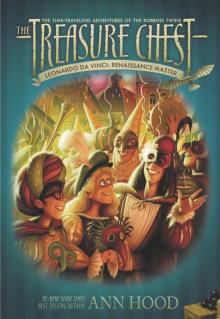 Leonardo da Vinci: Renaissance Master
Leonardo da Vinci: Renaissance Master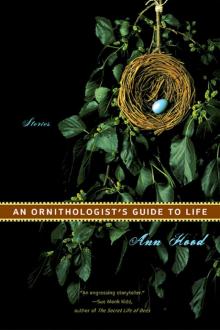 An Ornithologist's Guide to Life
An Ornithologist's Guide to Life The Red Thread
The Red Thread She Loves You (Yeah, Yeah, Yeah)
She Loves You (Yeah, Yeah, Yeah)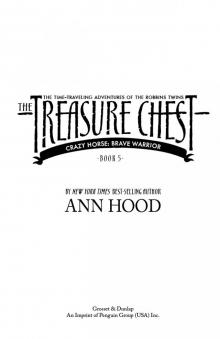 Brave Warrior
Brave Warrior How I Saved My Father's Life (and Ruined Everything Else)
How I Saved My Father's Life (and Ruined Everything Else) An Italian Wife
An Italian Wife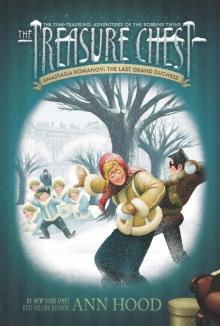 Anastasia Romanov: The Last Grand Duchess #10
Anastasia Romanov: The Last Grand Duchess #10 Prince of Air
Prince of Air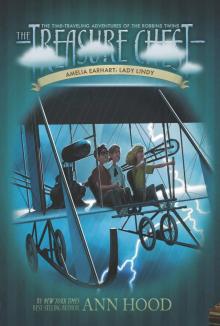 Amelia Earhart: Lady Lindy
Amelia Earhart: Lady Lindy Places to Stay the Night
Places to Stay the Night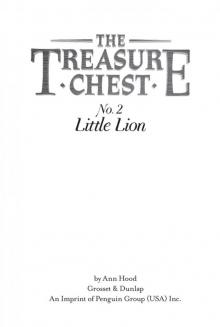 Little Lion
Little Lion Comfort
Comfort Angel of the Battlefield
Angel of the Battlefield